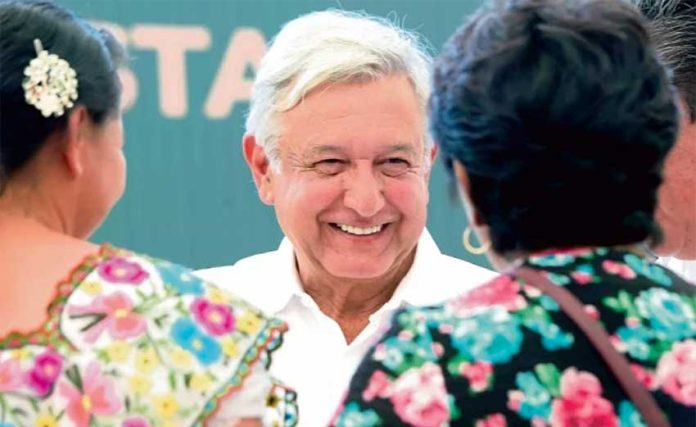Complete abrogation of the education reforms implemented by the previous federal government would be a backward step for Mexico, experts said after the president threatened Saturday to do just that.
President López Obrador said he will issue a decree to repeal the reforms if his own education plan is held up in Congress by opposition lawmakers and the CNTE teachers’ union, which argues that it doesn’t go far enough.
The president conceded that there are groups who don’t view his education laws favorably, adding “we’re going to be talking with everyone until there’s an agreement but if it takes too long, I will bring out a decree to abrogate the badly named education reform while the new proposal is approved.”
López Obrador said that his government won’t persecute teachers “as the past administration tried to do” but made it clear that he intends to put an end to the practice of selling positions.
He also said that teachers’ salaries will be paid directly by the federal government to avoid “diversions of funds” to state governments and union leaders, adding that teachers won’t be subjected to compulsory evaluations as was the case under the Enrique Peña Nieto administration.
If a teacher has completed studies in education, he or she has sufficient training to teach, López Obrador charged.
Roberto Rodríguez Gómez, an education researcher at the Institute of Social Sciences at the National Autonomous University (UNAM), was among several experts who warned that if the president follows through with his repeal-by-decree plan, the consequences will be dire as Mexico would effectively return to the legal framework for education that existed before 2013.
“With this decision, the education sector would return to the hands of the union. [They would control] everything that has to do with the allocation of positions, the promotion of teachers . . . and transfers. It would also eliminate the possibility of having the best teachers, which is assured through evaluations,” he said.
Rodríguez also said the president doesn’t have the power to unilaterally cancel the past government’s education laws.
“To repeal the reform, the constitution needs to be modified but that cannot be carried out at the president’s will but rather it has to go through the legislative bodies – the Chamber of Deputies, the Senate and the state legislatures,” he said.
Marco Fernández, a researcher at public policy think tank México Evalúa, said that repealing the reform would amount to “a contradiction with what the president has said in disagreement with the practices of the inheritance and sale of [teaching] positions.”
He added that it was the “very legal framework” that existed before 2013 that “allowed these bad practices” to happen.
Carlos Arnelas, another UNAM researcher, said “the most negative part of the president’s proposal is that once again the union would colonize basic [pre-school to middle school] education,” explaining that “in other words it would have a very strong capacity for negotiation at a state level and no governor would have the power to confront them.”
Alma Maldonado, an education researcher at the National Polytechnic Institute (IPN) Center for Investigation and Advanced Study (Cinvestav), said the most worrying aspect of the repeal plan is the elimination of the National Education Evaluation Institute (INEE), “because it generates vital information about the education sector.”
Teacher evaluation as set out in the former government’s education reform was vehemently opposed by the CNTE union, which protested frequently throughout Peña Nieto’s presidency.
Source. El Universal (sp), Milenio (sp)
